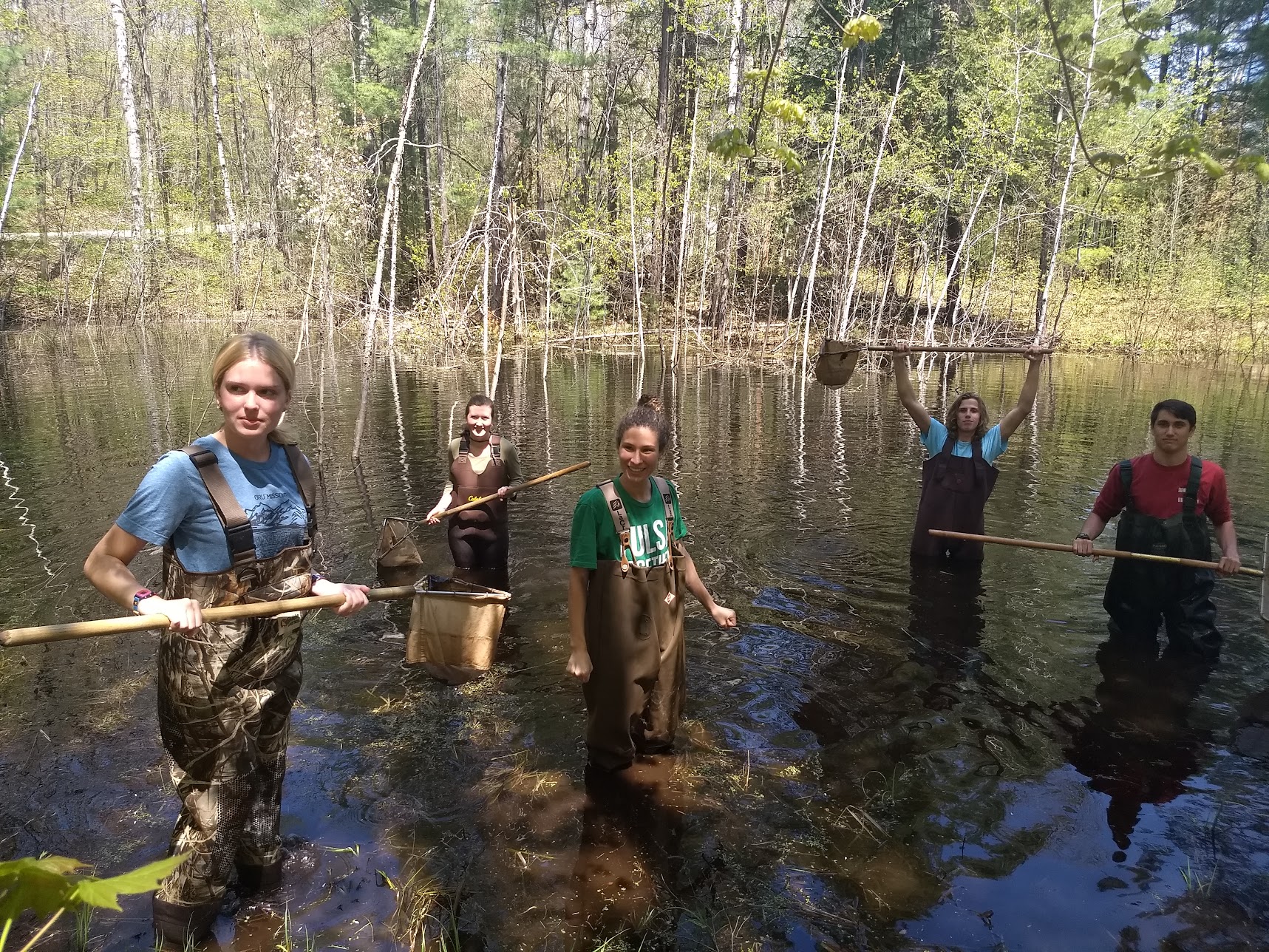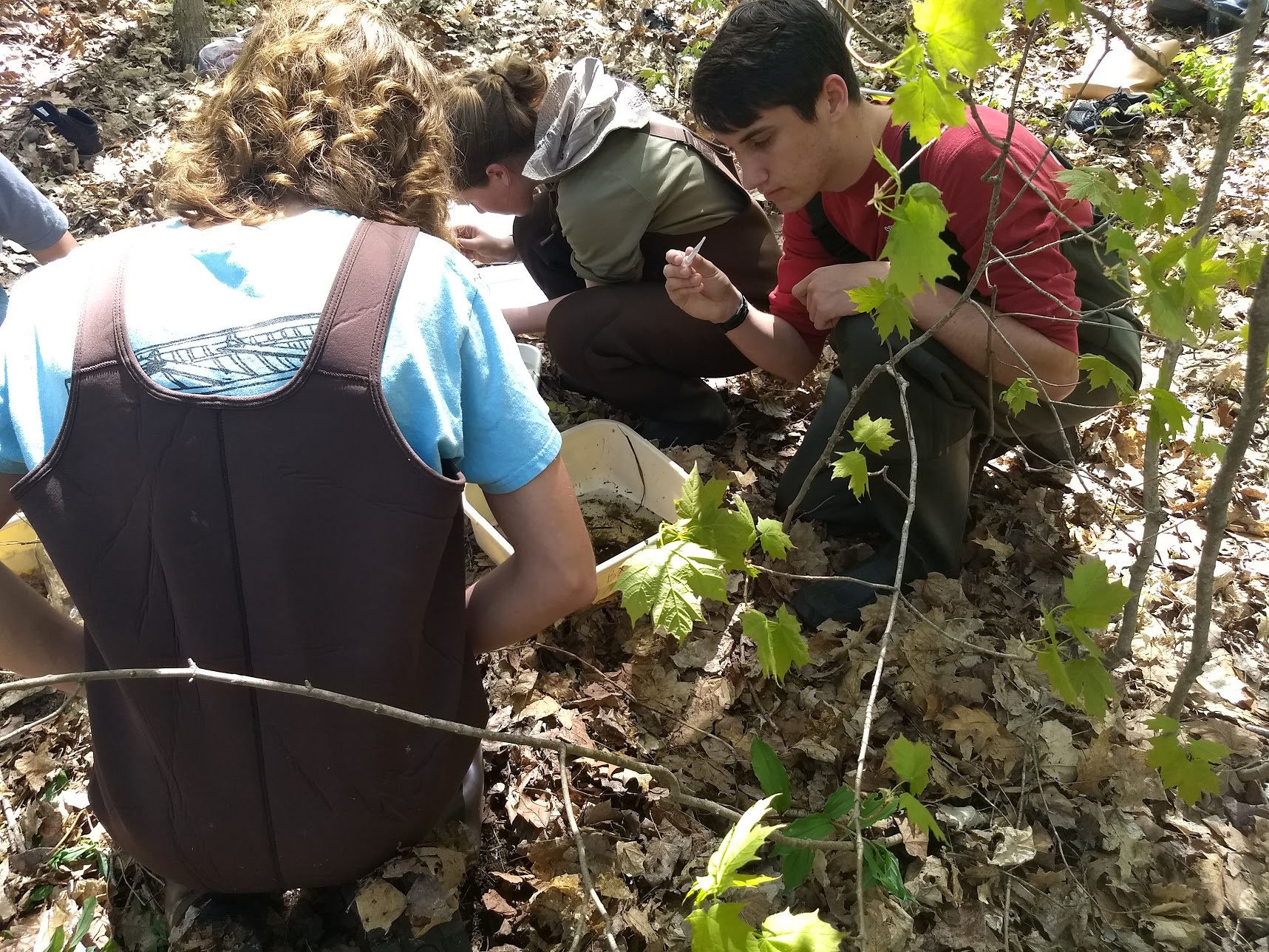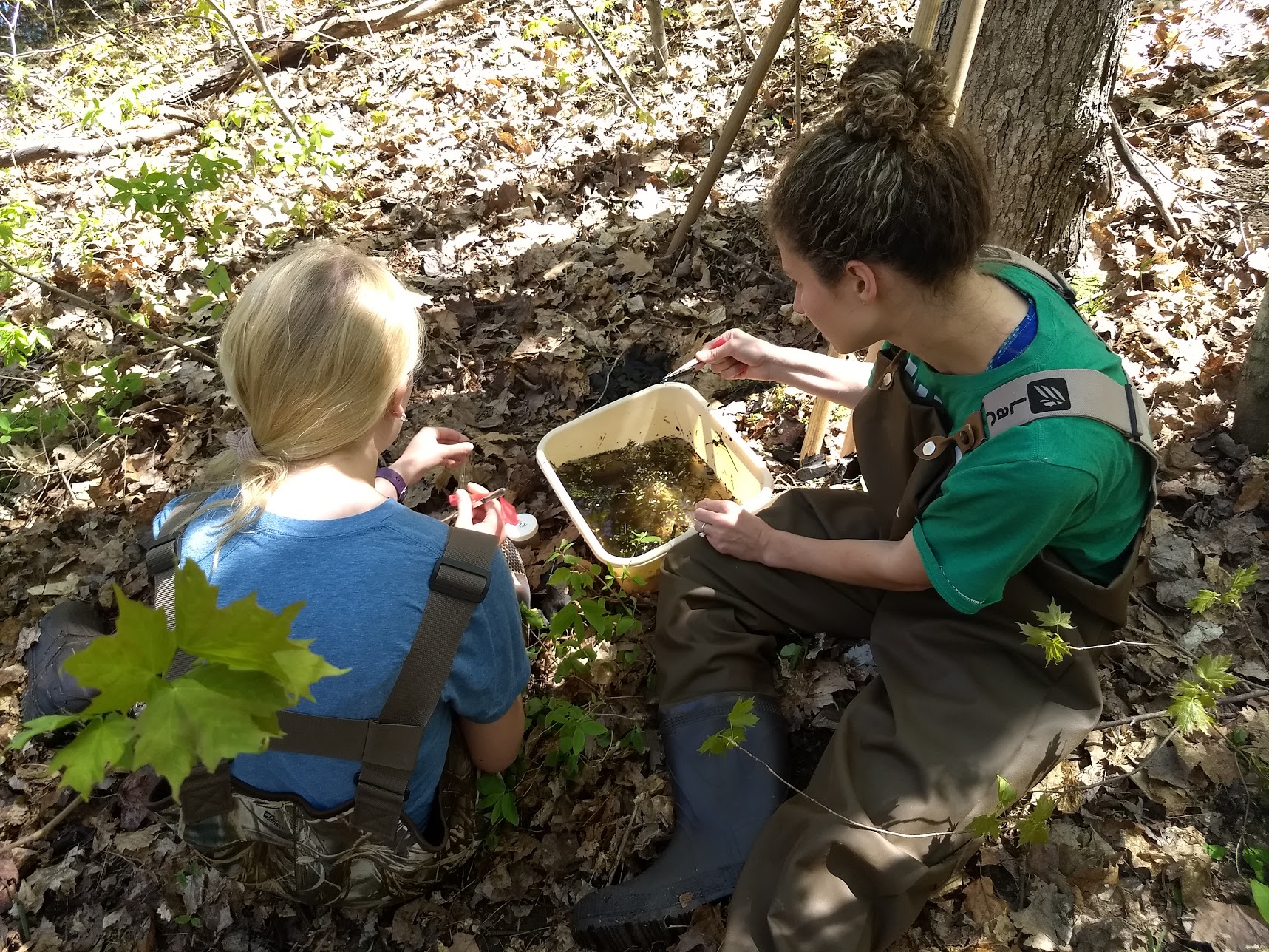Insect Ecology
biol 365 - Great Lakes - May Session
Ecology, systematics, life history and behavior of terrestrial and aquatic insects with an emphasis on field identification skills while exploring a variety of local habitats and considering the roles of insects in pollination, decomposition, herbivory, predation and pathogen transmission. The use of insects in citizen science is explored, including participation in the MiCorps stream monitoring program that provides familiarity with stream sampling and macroinvertebrate communities. (4 credits)
Field, Applied
Professor: Dr. David Hoekman
Knowledge Gained
Appreciate the phenomenal breadth of insect taxonomy and know the major orders and representative examples
Communicate the importance of insects as selective, stabilizing and potentially destructive components of ecosystems
Know the basic anatomy and physiology of insects
Comprehend ecological concepts / principles at the physiological, population, community and ecosystem levels
Skills developed
Learning to recognize a wide variety of insect Orders and Families
Sampling techniques for insects in aquatic and terrestrial settings
Microscope proficiency and insect identification
Familiarity with field biology
Use of waders and aquatic sampling equipment
Field Experiences
Au Sable Campus
Hartwick Pines State Park
Sleeping Bear Dunes National Lakeshore
Pickerel Lake
Grass River Natural Area
Arcadia Dunes
Jordan River Valley
Au Sable River
Manistee River
Lost Lake
Bear Lake Bog



